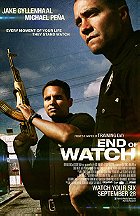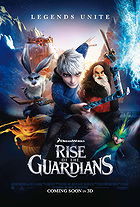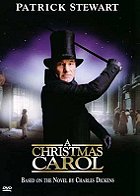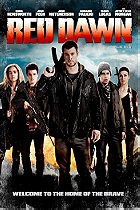Ah, the oft-exploited Christmas television special, one of the most obvious and whore-ish business moves in the industry. Every year, networks and studios clamber to get their foot in the game, with scores of holiday specials tossed at the wall and with only a select amount ultimately sticking. There's a lot at stake in this game: create a genuine hit and you will become a holiday tradition for decades, but fail to deliver and all your hard work will seldom be seen again. In 2007, Shrek was a hugely profitable brand, with its third instalment having amassed gargantuan figures at the box office. Thus, Shrek the Halls was created to cash in on attention-depraved, oblivious kids and their parents' income. The resultant 20-minute special is not dreadful by any means, but it's plagued with a strong stench of commercialism. It's doubtful that anyone put a great deal of effort into the flick outside of the animators.

Christmastime is approaching in the proverbial swamp, and Donkey (Murphy) is overjoyed by the impending festive season. Shrek (Myers), on the other hand, is less enthusiastic, choosing to ignore the holiday altogether. But when Shrek learns that Princess Fiona (Diaz) wants a big, happy family Christmas, the bumbling ogre hastily sets out to organise something significant for his wife and babies, assisted by a "Christmas for Village Idiots" guide. Of course, Donkey interjects, bringing with him an array of characters from Far, Far Away. All Shrek wants is the perfect Christmas with his small family, but he's confronted with raucous hijinks and outright chaos. Twenty minutes pass and everyone learns a lesson, while DreamWorks Animation head Jeffrey Katzenberg swims in a giant pool of money.
In other words, Shrek the Halls presents a clichéd narrative constructed around the clichéd "family is what you make it" theme. Moreover, it brings back the recurring Shrek series theme of "what does it all mean?", only within new wrapping. Seriously, how many times has this plot being committed to film?! Plus, Shrek the Halls closes with the real Santa Claus flying past the main characters, who are all happy and dandy after working out their differences. Is there any originality left in the Christmas special subgenre anymore? To the credit of the picture, though, this doesn't feel like a nasty bargain-basement version of Shrek assembled by mercenary animators to fill a TV slot. See, the problem with Shrek the Halls is predominantly the timeslot. The Shrek movies have 90 minutes to work through comedy and character development, and progress through a satisfying three-act structure. But here, the makers had all of 20 minutes, leaving them to shove at least an hour of content into a bite-sized chunk. While it may seem ostensibly good to cut out the flab, it leaves no room to breathe. As a result, there's no rhythm, and that's a death knell in comedy. Shrek the Halls should have been an hour-long special.

Fortunately, the franchise's major voice actors are present and accounted for, and no cheap substitutes were utilised. A few supporting characters were left out, but the big four - Mike Myers, Eddie Murphy, Cameron Diaz and Antonio Banderas - are all here voicing the roles they're recognised for, plus we have Conrad Vernon as the Gingerbread Man and Aron Warner as the Wolf. The sense of continuity allows Shrek the Halls to feel like more than just a cheap spin-off. Production values also remain good, with vibrant animation living up to the standards set in the feature films. Granted, too, this special often remains watchable and contains a few nice moments of amusement. In particular, the Gingerbread Man's version of "The Night Before Christmas" is pure gold, reworking the story to involve Santa reimagined as a giant terror who stalks candy folk as if they were teens in some cheesy monster movie. Outside of this, though, Shrek the Halls mainly relies on Donkey prancing around leaning on his usual shtick. This stuff is hit-and-miss.
As a cynical adult, this reviewer can easily see Shrek the Halls for what it is: a shameless way to cash in on the popularity of Shrek, as well as a marketing ploy since it originally aired around the time that Shrek the Third reached home video. DreamWorks merely had to situate these characters in a Christmas-themed plot, quality be damned. After all, it's the brand name that will allure young kids, who will be delighted to see Shrek and his friends again, and will be all the more overjoyed to see them doing something to which they can relate. Children will probably watch Shrek the Halls on a loop around the holiday season (my little cousin, a gargantuan Shrek fanatic, found it enrapturing), but adults will be less inclined to share it with their youngsters.
5.2/10
 Login
Login
 Home
Home 183 Lists
183 Lists 1674 Reviews
1674 Reviews Collections
Collections
 0 comments,
0 comments, 

































